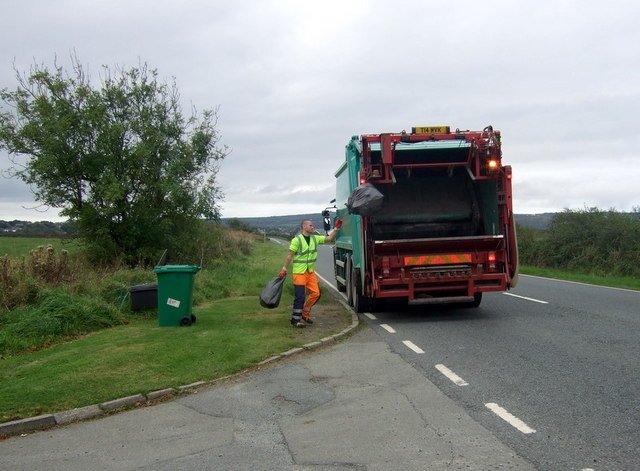Table of Contents Show
Canada has always been a popular place with investors for one reason: there’s no residency or citizenship requirement for ownership. As such, if you’re an investor, you can easily turn some profit if you’re familiar with the property tax laws.

Or, if you’re just someone looking to buy a house in Canada, knowing how the property taxes work is important. Either way, property taxes in Canada on new homes can be somewhat complicated.
This has led to a lot of problems in the past, and homebuyers today are, understandably, worried about misunderstandings. So, in order to clear up some confusion, we’ve put together an explanation of property taxes on a new home in Canada.
Transfer Taxes
The first of the property taxes on a new home in Canada you need to worry about is the transfer tax. When you buy a property in Canada, you have to pay a provincial transfer tax.
The exact percentage varies from province to province, so doing some research is going to be needed. However, it’s usually around 1% on the first $200,000, and around 2% on the balance. That said, there are some exemptions if this is your first purchase in Canada.
All in all, this might not seem like much, but it can definitely sneak up on you if you’re buying particularly expensive property. So, do your research ahead of time and figure out how much the tax is in your province.
And when touring potential properties, consider some warning signs the roof needs repair or replacement. You don’t want to buy a house with a faulty roof.
Read Also:
Municipal Taxes
After you buy the home, you’ll have to worry about annual property taxes as well, levied by municipalities. These taxes are calculated based on the assessed property value of the house, which reflects market value.
Keep in mind, however, that school taxes as well as some other taxes are included in this annual property tax. Additionally, information about municipal taxes on specific properties is publicly available and easy to find.
So, if you’re curious, you can easily find out what the municipal tax is on a property you’re interested in. All in all, while it’s not exclusively part of the property taxes on a new home in Canada, municipal taxes are something you need to know about.
And when you’re considering moving into your new home, consider the benefits of hiring a professional moving company to help you out. After all, you shouldn’t take any risks when moving out.
Goods and Services Tax
New home purchases in Canada are also followed by the goods and services tax, also known as GST. However, if you plan to live in the home, you can get a partial rebate; although, this only applies to builder-renovated or new homes.
Additionally, keep in mind that the goods and services tax doesn’t apply to resale homes. So, it’s vital to do your own research into the property and whether or not the purchase would be affected. All in all, the goods and services tax might not come into effect, but it’s something you should know about.
And if you’re moving to a new home from far away, you should prepare well. When it comes to long-distance moves, you should rely on experts to help you out no matter what. Arrange a quick transfer of your belongings so you can have some peace of mind during the process.
Taxes on Rental Properties
For investors, keep in mind that the Canadian Income Tax Act requires 25% of the gross property income to be remitted annually. For non-residents, you can instead complete the NR6 form and elect to pay 25% of the net rental income, after expenses.
This may seem like a lot, but there is a good side to it as well. If the property incurs a net loss, you can easily reclaim previously paid taxes. Finally, keep in mind that the income is treated differently if you’re a partner or co-owner, as well as if it’s considered business or rental income.
This can seem fairly complicated, but in the long run, it’s easy to understand. And if you’re planning on working with rental properties, keep in mind some kitchen renovation ideas. At the end of the day, you want to make sure your rentals are as valuable as possible.
Deducting Incurred Expenses on Rental Properties
While the tax may be fairly high, you can deduct two types of expenses to earn some rental income. Your current operating expenses and capital expenses, with the second being more important.
Capital expenses are more important because they bring more long-term benefits. For example, furniture: furniture or equipment costs can’t be deducted against your rental income during that year.
However, the full cost can be deducted over several years. This is because these items depreciate in value; for clarification, this deduction is called the capital cost allowance, or CCA. For any investors looking into rental properties in Canada, this can help out quite a bit in the long run.
However, we always recommend doing your own research into things like this frequently. You never know when things can change, and you should always be up to date. After all, things like this are very important to any investor.
Property Taxes on a New Home in Canada Explained – The Takeaway
There is a lot to consider when looking into a new home in Canada, and taxes are probably the most important factor. Whether you’re just looking for a home or you’re an investor looking to turn a profit, taxes need t be carefully considered to ensure success.
Thankfully, Canada’s tax laws when it comes to new homes aren’t particularly complicated, and all you need is a little bit of research to make sure you understand them.
That said, misunderstandings are fairly common and cause a lot of problems, so make sure you do your research thoroughly. We hope that this explanation of the property taxes on a new home in Canada helps you out, and we wish you a great rest of your day.









